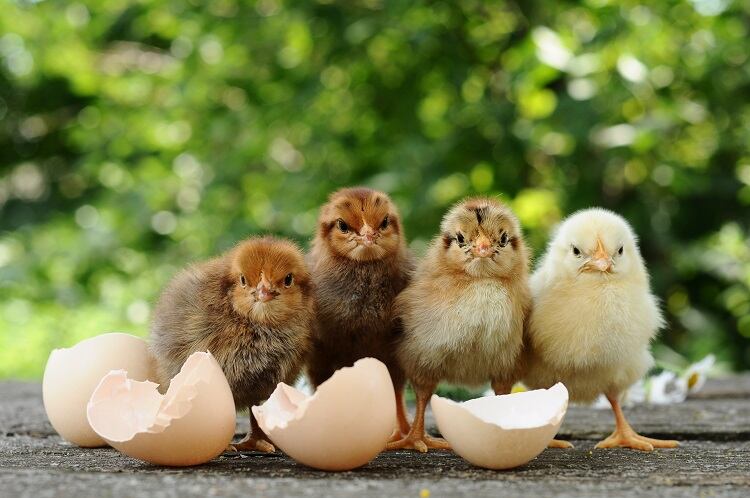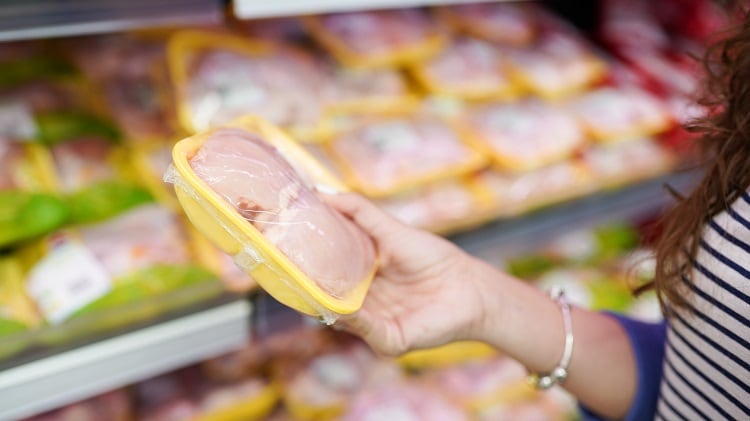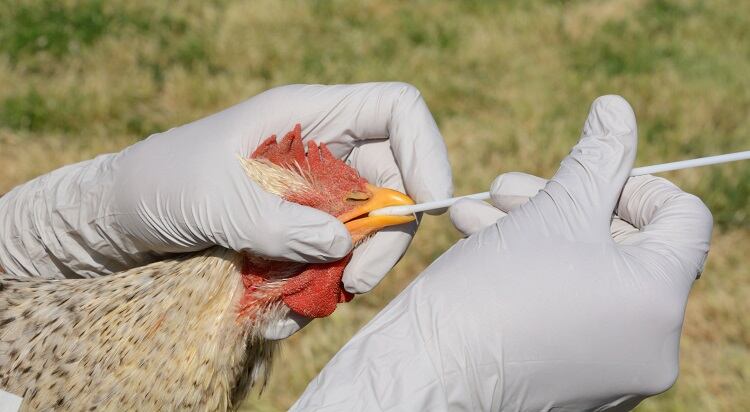Federal Agriculture Minister Julia Klöckner has expressed her frustration at the industrial poultry sector in Germany, suggesting players have not made sufficient steps towards eliminating the practice of chick culling.
“As I have not yet been able to see that the industry is using the existing alternatives to end chick killing across the board by the end of 2021, I am proposing a law,” she told regional newspaper Neue Osnabrücker Zeitung (NOZ).
What is chick culling?
The mass-culling of unwanted male chicks is common practice in global industrial farming. It occurs in all intensive egg production, whether free range, organic, or battery cage.
As male chicks will not go on to lay eggs, they are considered redundant by egg and poultry producers. Further, hens are preferred for meat because they grow faster.
Ultimately, it is considered uneconomical to fatten male chicks. As a result, once hatched and identified as male, they are ‘shredded’ in industrial macerators or suffocated using nitrogen or argon gas.
If a law to ban chick culling in Germany were to be approved, it would prohibit killing the estimated 45m culled male chicks each year. Rather, egg producers could use one of the alternative strategies already available to them: gender determination, or the so-called ‘dual-use chicken’ – whereby male chicks are fattened for the poultry market.
German-based Seleggt, for example, is working on gender determination technologies. The start-up has developed a process that identifies the gender in a hatching egg. First, the technology uses a sensor to determine whether the hatching egg is fertilised.
A laser then creates a fine hole in the shell – which naturally mends itself within a matter of hours – and allantoic fluid is withdrawn to test the gender. If the egg is unfertilised, or found to contain a male embryo, it is processed into high-quality feed.
Ruffling feathers?
To date, Klöckner has set voluntary targets with poultry and egg producers to limit chick culling.
A rapidly implemented mandatory ban, however, is not the answer, according to President of the Central Poultry Industry Association (ZDG), Friedrich-Otto Ripke. Rather, Ripke – who similarly wants to end chick culling – is pushing for a mass method of identifying sex in the egg to be developed first.
Further, Ripke told NOZ, the ban could easily be avoided by producers importing laying hens from abroad. “Chick killing for young and laying hens used in Germany would continue abroad,” he told the German newspaper.
By following the industry agreement, Ripke said: “By the end of 2021, we will be able to save the brothers of approximately 30m…chicks hatched in Germany.” In 2023, he continued, laying hens would live in areas where no male chicks are killed.
Once pecked, twice shy
Klöckner’s comments were largely well received by the German arm of animal welfare charity PETA.
However, a spokesperson told FoodNavigator the charity was hesitant to believe the Agriculture Minister would propose the law.
“To gas about 45m chicks per year is an unethical crime. Instead of prohibiting this practice a long time ago, Mrs Klöckner and her predecessors have always bowed to the industry’s will,” we were told.
Further, “previous disappointments have taught us we need to be cautious whenever a minister of agriculture makes an animal welfare announcement”, the spokesperson added, citing a decision by Klöckner to prolong the castration of piglets without anaesthetic for two-years.
“We take none of her mere announcements for granted and keep pushing for an immediate ban of the killings.”




